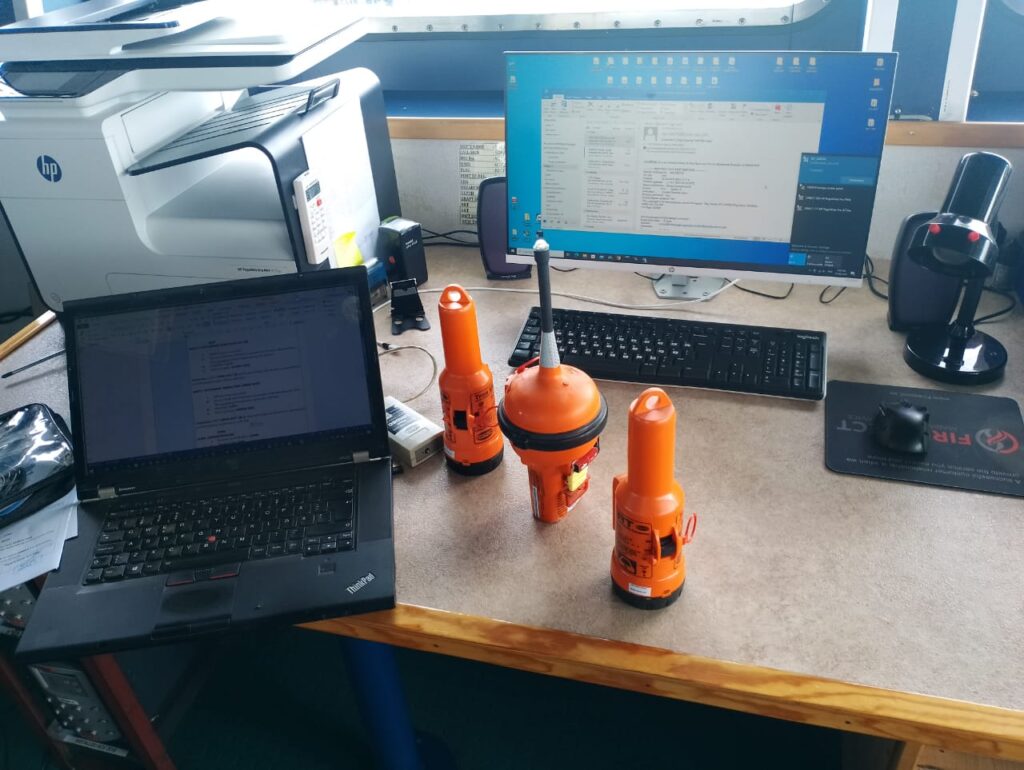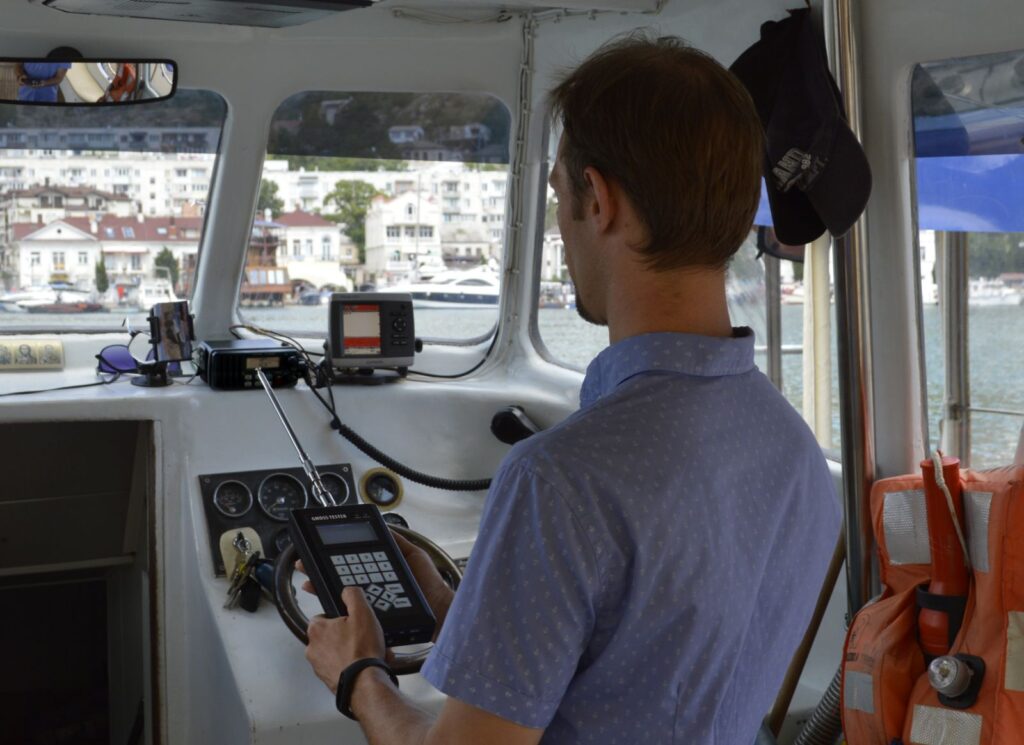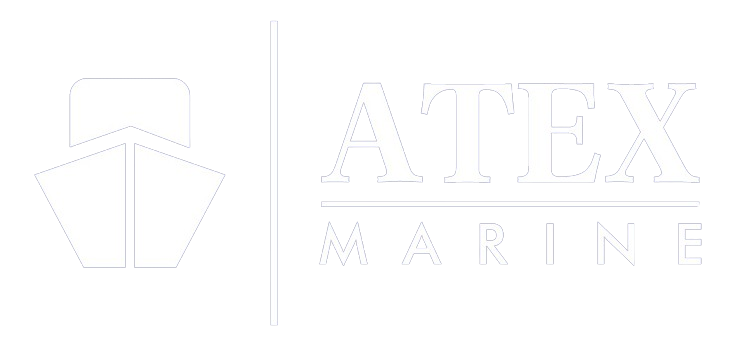VHF and GMDSS Equipment Configuration Services
Comprehensive Programming for VHF and GMDSS Systems
We specialize in advanced programming services for all brands and models of VHF Class A and Class D radios. Our expertise includes resetting Maritime Mobile Service Identity (MMSI) numbers, updating vessel particulars, and reprogramming VHF and GMDSS equipment during changes in vessel flag, MMSI, or vessel name.


VHF Pre-Programming Services
Our pre-programming service for VHF Class A and Class D units ensures that devices ordered from us are fully configured before shipment. This service negates the need for you to set up a PC, install software, or manually program the unit.
Pre-Programming Procedure:
- Comprehensive testing of the unit.
- Verification of transmission and reception performance.
Once pre-programmed, the VHF equipment will be ready for immediate installation and use upon delivery.
GMDSS Equipment Reprogramming
When acquiring a new or pre-owned vessel, or during vessel name, MMSI, flag, or class changes, reprogramming of GMDSS equipment is crucial to update the new vessel information in the equipment software.
With over 16 years of experience, our class-certified engineers and technicians possess extensive knowledge in programming a wide range of GMDSS equipment models. We offer on-site reprogramming services to ensure compliance and functionality.
Post-Programming Services:
- Equipment testing and certification.
- Updating equipment with the new vessel details.
Required Information for VHF Programming
To utilize our VHF programming services, please provide the following details via email:
- Vessel Name
- Vessel MMSI Number
- Vessel Call Sign
- Vessel Type
- Flag of the Vessel
- Port of Registry
Contact Us
Ensure your VHF and GMDSS equipment is correctly programmed and certified. Contact us today for reliable and efficient programming services!
Marine VHF Radio FAQ
- What is a Marine VHF radio?
- Marine VHF (Very High Frequency) radio is a communication system extensively used in maritime operations for ship-to-ship, ship-to-shore, and ship-to-land communication.
- What are the differences between Class A and Class D Marine VHF radios?
- Class A VHF radios, mandatory for SOLAS (Safety of Life at Sea) vessels, offer advanced features such as automatic distress alerts and continuous watchkeeping. Class D VHF radios are simpler, suitable for smaller vessels, and provide basic communication functions.
- What is DSC (Digital Selective Calling) on Marine VHF radios?
- DSC enables vessels to send and receive digital distress alerts and communicate with specific stations using pre-defined digital codes on both Class A and Class D VHF radios.
- Can Marine VHF radios be used for voice communication only?
- Yes, Marine VHF radios primarily support voice communication but also support DSC for digital text-based communication for distress alerts and other messages.
- What channels are used for distress calls on Marine VHF radios?
- Channel 16 is internationally designated for distress, safety, and calling. DSC-equipped VHF radios also use a dedicated DSC distress channel.
- What range can be expected from Marine VHF radios?
- The range depends on antenna height, atmospheric conditions, and obstacles, generally varying from a few nautical miles to over 20 nautical miles.
- How do I perform a radio check on a Marine VHF radio?
- Switch to a non-distress working channel (e.g., Channel 9 in some regions), announce your vessel’s name, and request a radio check. Another vessel or shore station in range will respond to confirm reception.
- Are Marine VHF radios required to be licensed?
- Yes, a radio operator’s license and a ship station license are required, and radios must be registered with appropriate identification.
- Can Marine VHF radios be used for inland waterway navigation?
- Yes, Marine VHF radios are used for communication on inland waterways, with regulations and channel allocations varying by region.
- What maintenance is required for Marine VHF radios?
- Regular maintenance includes checking antenna connections, securing the radio, testing receiver sensitivity, and verifying DSC functionality. Periodic inspections by a certified technician are recommended.
- Can Marine VHF radios be used for weather updates?
- Yes, many Marine VHF radios have built-in weather channels (e.g., NOAA Weather Radio) or can connect to external weather receivers for forecasts and alerts.
- Are Marine VHF radios waterproof?
- Marine VHF radios are designed to withstand marine environments, but should be installed in protected locations with weatherproof covers as necessary.
- Can I use Marine VHF radios for communication with aircraft?
- Marine VHF radios are designated for maritime use and should not be used for communication with aircraft to avoid interfering with aviation frequencies.
- Are Marine VHF radios equipped with GPS?
- Some advanced Marine VHF radios, particularly Class A models, feature integrated GPS for automatic position reporting during distress alerts and enhanced navigation capabilities.
- What additional features should I look for when selecting a Marine VHF radio?
- Consider features such as built-in DSC capability, waterproof construction, compatibility with external GPS and AIS (Automatic Identification System), channel scanning, and user-friendliness.
